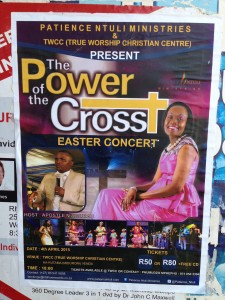Recently, an influential evangelical, Justin Taylor pulled some reasons together that we should doubt young earth creationism. By Young Earth, as I’ve mentioned before, we do not mean 6,000 years, but rather no macroevolution. If we have no macroevolution, we will have an earth that is relatively young. There may be some gaps in the genealogy of Genesis 5. There may be an undefined period of time that Adam and Eve lived in sinless perfection.
But what there will not be is any death before sin. There will not be Cro-Magnon man. There will not be a hermeneutic guided by secular scientists.
Here are his arguments.
His Introduction:
Taylor:
Contrary to what is often implied or claimed by young-earth creationists, the Bible nowhere directly teaches the age of the earth.
The issue is not the exact number of years, but whether or not we are giving any respect to evolution.
Taylor
It is commonly suggested that this is such a “plain reading” of Scripture—so obviously clear and true—that the only people who doubt it are those who have been influenced by Charles Darwin and his neo-Darwinian successors. The claim is often made that no one doubted this reading until after Darwin. (This just isn’t true—from ancient rabbis to Augustine to B. B. Warfield—but that’s another post for another time.)
- The five men he quotes from are after Darwin, except for Augustine, and including B. B. Warfield (1851-1921) whom he implied was before Darwin.
- Augustine’s supposed comment was treated in the comments. Historically, before Darwin, who ever held to an old earth?
- Two, possibly 3 of the 5 “stalwarts of the faith” were men who couldn’t see the errors of ecumenism (Young and Henry). Like all men, they were not always discerning, or if they were, they were afraid of giving offense for the truth.
Taylor
I fear that we’ve built an exegetical “fence around the Torah,” fearful that if we question any aspect of young-earth dogmatics we have opened the gate to liberalism.
Because of the repeated compromises in evangelicalism we are rightly concerned that questioning “young-earth dogmatics” again is in fact opening the door to evolution.
And now to his five points.
1. Genesis 1:1 Describes the Actual Act of Creation Out of Nothing and Is Not a Title or a Summary
How exactly does this damage young earth creation? It is possible that God formed matter in 1:1 and formed it throughout the rest of the story. It is possible that 1:1 stands as a summary. But either way, how does that weaken YEC or strengthen OE?
He mentions the perfect tense and the vav conjunction, but that sounds like trying to squeeze more out of the grammar than the author intended. For example, a verse he’ll use later Ex. 31:17, has God’s resting in the perfect tense. So does that mean God’s resting is now done? Well, he’s going to argue in point #3 that God’s resting is not done. Don’t make grammar do more than it was intended to do.
Even if those observations are what the author intended, its not clear how that casts a shadow on YEC.
2. The Earth, Darkness, and Water Are Created Before “The First Day”
This could refer to matter being created in an unformed state before God formed it each day. It could also be part of the summary. Either way, this doesn’t weaken YEC in any way that I can see.
His comments about “let there be” should be understood more by the immediate context than by jumping to a cross reference. If there is nothing in Gen. 1 to tell us what the phrase means, then lets go elsewhere, but the first chapter of the book is not opaque unless you bring that opaqueness with you, like Boromir brought a dark heart into Loth-Lorien.
3. The Seventh “Day” Is Not 24 Hours Long
Doubtful is the best thing that could be said for this observation. He sees that there is a rest belonging to God in Psalm 95:11. He then assumes that it is the same rest as Gen. 2:3. He then assumes that the seventh day is longer than 24 hours. As D. A. Carson has said, before I form an opinion on an important doctrine I want to see it more than in an obscure passage. Do you think we could introduce Carson and Taylor?
Using that hermeneutic, we could say the Peter’s call to Jesus while he was sinking, “Lord, Save me!” (Matt. 14:30) is a proof text for the sinner’s prayer because he said the word “save.” “We shall judge angels” (1 Cor. 6:2) contradicts Jesus’ teaching, “Judge not, that ye be not judged.” Then again, if God is resting, then why did Jesus say I work and my Father works (John 5:17)? Just because we see the word “rest” used twice referring to God does not mean that they are the same rest or that the first rest endured chronologically to the second rest.
But of all five points, I think this is his strongest one.
4. The “Day” of Genesis 2:4 Cannot Be 24 Hours Long
Fine. It’s not a 24-hour day. The normal laws of language allow everyone to see that it refers to time periods. Young earthers prefer normal usage, not necessarily literal since we all acknowledge figures of speech.
Since normal language allows this to be a figure, there is no problem at all with consistency.
Hosea 6:2 seems to be an exception to the general rule that numbered yom is a 24-hour day. But isn’t Hosea 6 referring to a type of Christ’s death and resurrection? If so, there is another tie to a literal day. However, put this in perspective: Scripture uses yom with an ordinal scores of times, and each time it refers to a 24-hour day. Once, probably, in Hosea it refers to a time period, yet the overwhelming usage says, yom with ordinals are literal days.
Specifically, the context of Gen. 1 does not need anything other than literal days to be understood by any reader unless he has a PhD.
5. The Explanation of Genesis 2:5-7 Assumes More Than an Ordinary Calendar Day
This is as pretty a picture as the first observation. The logic no more implies a long day than it implies a short day. Ordinary providence (italicized by Taylor) could fit a YEC explanation. God created everything in 6 days, and we were still going to wait until man and God’s ordinary providence brought all the beauty of the shrubs and crops. But if you quote a PhD from a Reformed seminary and if you mention the covenants, you’ve really proved your point, I guess. In some circles at least.
Why did Taylor write about this?
What would motivate an article like this? Notice his last line of the article: “But I see no reason to insist that they were only 24 hours long.” Nothing? Not even weaker arguments? There’s no danger in evolution? You can’t possibly be wrong? He is totally committed to OE and whatever evolution must come with it. Nice, open-minded position on a “secondary” issue, eh?
We not only know he’s confident, but he thinks its really important because:
- He knew it would be controversial, yet he still clicked “publish.”
- Its on the Gospel Coalition website which supposedly centers on the most vital issues to Christianity and overlooks the minor debates.
- He can’t even concede that there is any support for a firm 24-hour day position.
Mr. Taylor thinks it is critical for Christians to loosen their grip on Young Earth Creationism. Why? Because he wants to argue for an old earth model, and old earth means evolution. Now, why would he want to give any support to evolution? More cynical (or realistic) minds than mine can go in print on that question, but that is where the debate should be.
When I first read this article, I didn’t think: We’ve really got to respond to him point by point because his arguments are so trenchant! I thought rather, What would make a committed brother in Christ sell out the faith and the Word of God to worldly philosophy on this vital point?
When atheist Gordon Stein tries to derail Greg Bahnsen in the Great Debate by asking him about immoral actions in the OT, Bahnsen rightly ignores his specifics and goes for the root of the tree: “In an atheist universe, why is that wrong?”
I would say to Justin Taylor, In a Christian universe, who needs evolution? If no one, then take that divisive post off the Gospel Coalition which is supposed to be about unity around the essentials? If he really is jockeying for evolution, then speak up. Let’s have no gamesmanship. Let the lines be clearly drawn so we can see what we are debating over.
Gullibility is no fruit of the Spirit, and evolution is no fruit of true exegesis.
Like this:
Like Loading...

 Maybe the world should not have been colonized. But regardless of the morality of England, Portugal, France, and some others trying to spread their culture and govern lands outside their own, that could never have been done by women.
Maybe the world should not have been colonized. But regardless of the morality of England, Portugal, France, and some others trying to spread their culture and govern lands outside their own, that could never have been done by women.









